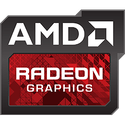
AMD Allegedly Has 200,000 Radeon RX 7900 Series GPUs for Launch Day
AMD is preparing the launch of the Radeon RX 7900 series of graphics cards for December 13th. And, of course, with recent launches being coated in uncertainty regarding availability, we are getting more rumors about what the availability could look like. According to Kyle Bennett, founder of HardOCP, we have information that AMD is allegedly preparing 200,000 Radeon RX 7900 SKUs for launch day. If the information is truthful, among the 200,000 launch-day SKUs, there should be 30,000 Made-by-AMD (MBA) cards, while the rest are AIB partner cards. This number indicates that AMD's market research has shown that there will be a great demand for these new GPUs and that the scarcity problem should be long gone.
A few days ago, we reported that the availability of the new AMD Radeon generation is reportedly scarce, with Germany receiving only 3,000 MBA designs and the rest of the EMEA region getting only 7,000 MBA SKUs as well. With today's rumor going around, we would like to know if this is correct and if more SKUs will circulate. America's region could receive most of the MBA designs, and AIB partners will take care of other regions. Of course, we must wait for tomorrow's launch and see how AMD plans to execute its strategy.
A few days ago, we reported that the availability of the new AMD Radeon generation is reportedly scarce, with Germany receiving only 3,000 MBA designs and the rest of the EMEA region getting only 7,000 MBA SKUs as well. With today's rumor going around, we would like to know if this is correct and if more SKUs will circulate. America's region could receive most of the MBA designs, and AIB partners will take care of other regions. Of course, we must wait for tomorrow's launch and see how AMD plans to execute its strategy.





